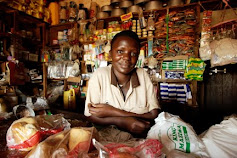
It’s taken me a long time to come around to caring about climate change. I have never been a scientific-minded person, and it takes about ten seconds for me to get lost in a technical discussion about global warming. It has not helped that every argument I read presents a different, rather subjective opinion on climate change. These arguments range from the belief that if we do nothing, the earth will disintegrate in a matter of decades, to those that claim that global warming is a complete farce. By the end of the day, any desire I might have had to engage in the discussion has vanished from my frustrated and confused mind.
Skeptics continue to question if any good can really come from climate change legislation. I myself am a person that needs to receive rational, detailed evidence before I will believe that an idea is worth pursuing. But in this debate, it’s hard to separate fact from fear.
I found this article from Jason Scorse, the Chair of the International Environmental Policy Program at the Monterey Institute, to be a nice push to look at the glass half full when it comes to the outcomes of reducing climate change, at both personal and legislative levels. His bottom line: “So what if global warming is a hoax? There are clear and inarguable reasons that we should be doing everything in our power to reduce our use of fossil fuels and become leaders in the green energy revolution. For a bonus we might also help to reduce climate change and ensure a reasonably hospitable planet for generations to come.”
If you still remain unconvinced that getting involved in this discussion is worth your time, remember this ultimate truth: it is our moral imperative as Christians to care about climate change. Why? Because climate change impacts the way people are able to live and provide for their families. The injustice of our current situation is that those that have contributed least to global warming are those in most danger of being affected by it. Vital resources will diminish, water scarcity will become an even greater problem, and the economic effects will hinder growth in developing countries. Here’s an excellent report on the correlation of poverty and climate change.
Daysix.org is an organization that is trying to keep these issues at the heart of the climate change debate as we near the December global climate talks in Copenhagen. For those of you that have a more visual bent, they’ve put together a great video that acts as the rally cry for climate change in the faith community.
The question that always remains for me in any issue is this: what are practical steps we can take to make a difference? Well, this is where we need to help each other; get discussions going and throw ideas out there. I think that a great place to start is taking a look at the food we eat, considering the huge role that it plays in our daily lives and relationships. Have you considered where your food comes from, if the farmers that produce it are treated justly (if, in fact, it actually comes from a good, old-fashioned farm), and how accessible healthy food is to the impoverished around the world? Other issues I’d like to tackle are the amount of trash we produce, cutting down the pollution we create with the exorbitant amount of driving we Southern Californians do, and creating access for our low-income communities to environmental education, good food, and the equal opportunity to benefit from new climate change legislation. The list goes on and on and on, but rather than letting that become a hindrance, let’s keep the conversation going and try to tackle these things one at a time as a community. Ideas anyone?


No comments:
Post a Comment